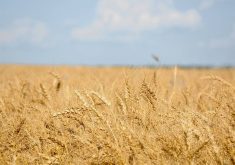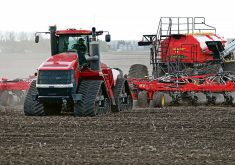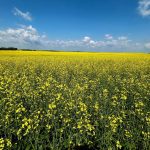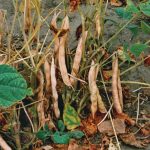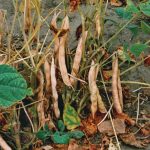The federal and three Prairie provincial agriculture ministers need to “work quickly” to get a handle on damage from excess rain on Prairie farmland and offer support, the provinces’ premiers said.
Meeting this week at the Western Premiers’ Conference in Vancouver, the premiers noted this growing season is expected to yield the largest abandoned acreage in Western Canada since the early 1970s.
“Yesterday I had the opportunity to tour the northeast part of our province which has seen the bulk of the excess water,” Saskatchewan Premier Brad Wall said in the Prairie premiers’ joint release on Tuesday.
Read Also

ICE Canada Weekly: U.S. biodiesel mandate will be a boon for canola
Canola is poised for more gains as the trade awaits the Trump administration’s decision on the latest biodiesel mandate, said Jamie Wilton, broker with RJ O’Brien in Winnipeg.
“Many farmers won’t get crops in the ground this year, while others have seeded acres now under water. This situation is going to have a serious impact on farm incomes this year.”
“Although we have programs in place to assist in times of need, governments have to work together to make sure our farmers get the help they require under these challenging conditions,” Manitoba Premier Greg Selinger added.
Thirty per cent of Saskatchewan cropland and 15 per cent in Manitoba are not yet seeded, the premiers noted. The amount of land seeded could increase by the time crop insurance seeding deadlines pass but the change would likely be “marginal.”
The premiers also cited the Canadian Wheat Board noting that between 8.25 and 12.5 million acres of Prairie farmland will go unseeded this year, with seeding only 78 per cent complete at a time when it’s usually done.
“It is important the ministers from the affected jurisdictions and our federal government work quickly to address the damage and offer support for hard-hit farming communities,” the premiers said in their release.
“While the flooding is not as widespread, in Alberta, input costs and commodity prices are always a risk,” Alberta Premier Ed Stelmach said. “This year our farmers and rural communities face the additional challenge of getting a crop in.”
The premiers added that they’ve already raised the issue with federal Agriculture Minister Gerry Ritz, a western Saskatchewan MP.
Restoration
On top of the unseeded acres, some farmers with seeded crops washed out may not be able to reseed, Manitoba’s general farm group, Keystone Agricultural Producers, noted in a separate release Thursday.
“After losing seeded crops to excess moisture, farmers lose a large percentage of their incomes due to the fertilizer and seed they’ve invested.”
Making matters worse, KAP noted Thursday, a flood watch has been issued by Manitoba Water Stewardship for areas of western Manitoba already affected by flooding.
KAP president Ian Wishart, while thanking the premiers for acknowledging the problem, also urged Ritz to consider reinstating the Cover Crop Protection Program (CCPP) “or a similar program under AgriRecovery.”
Land restoration, Wishart said, “is a key factor in helping producers get back into production.”
The now-discontinued CCPP had allowed farmers hit by spring flooding a one-time payment, meant to help them improve and protect flood-damaged soil by seeding it to cover crops. But such a program, if reinstated, “must offer a realistic payment which reflects today’s costs,” KAP urged.
Saskatchewan’s general ag group, the Agricultural Producers Association of Saskatchewan (APAS), is also calling on the federal and provincial ag ministers to take the first step toward an AgriRecovery response to the problem through the appointment of a task team.
AgriRecovery, APAS noted, was meant to offer a process for a “rapid financial response” to assist with immediate recovery from a disaster situation and to help producers quickly resume business operations after a disaster, bridging gaps in other ag programs.
“If there was ever a time when this program was legitimately needed, that time is now,” APAS president Greg Marshall said in a separate release Thursday.



